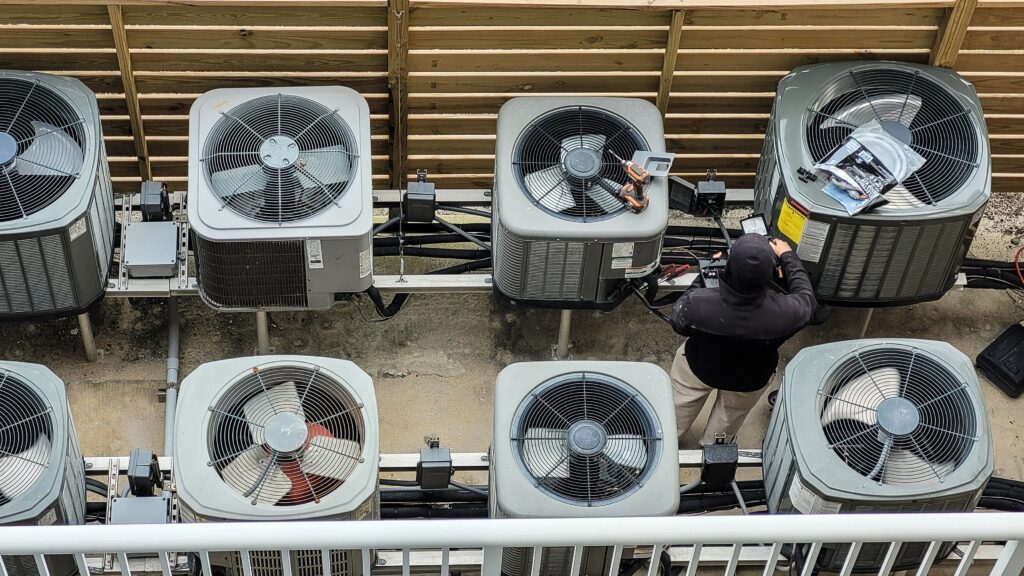Heating and cooling expenses can quickly add up, especially during extreme weather conditions. However, with the right knowledge and strategies, you can reduce your HVAC costs and save money without sacrificing comfort. In this article, we will explore the top HVAC cost-saving tips that can help lower your heating and cooling expenses.
Understanding Your HVAC System
Before diving into cost-saving strategies, it’s important to have a basic understanding of how your HVAC system works. HVAC stands for Heating, Ventilation, and Air Conditioning. The system is designed to regulate the temperature, humidity, and air quality in your home. It consists of various components that work together to provide optimal comfort.
One crucial component of your HVAC system is the air filter. The air filter is responsible for trapping dust, pollen, and other airborne particles, preventing them from circulating in your home. Regularly replacing or cleaning the air filter is essential for maintaining good indoor air quality and ensuring the efficiency of your system.
The Role of HVAC in Energy Consumption
Your HVAC system is one of the largest consumers of energy in your home. Understanding how it contributes to your energy consumption is crucial in finding ways to reduce costs. Heating and cooling can account for a significant portion of your energy bills, especially during peak seasons.
Another factor that can impact the energy efficiency of your HVAC system is the insulation in your home. Proper insulation helps to keep the conditioned air inside, reducing the workload on your system. Inspecting and improving the insulation in your home can lead to significant energy savings over time.
Key Components of an HVAC System
An HVAC system consists of several key components, including a furnace or boiler, an air conditioner or heat pump, ductwork, and a thermostat. Each component plays a vital role in providing effective heating and cooling. Maintaining and optimizing these components can help improve efficiency and reduce costs.
Additionally, the ductwork in your HVAC system plays a crucial role in distributing heated or cooled air throughout your home. Leaks or blockages in the ductwork can lead to energy wastage and uneven heating or cooling. Regular duct inspections and maintenance can ensure that your system operates efficiently and effectively.
The Importance of Regular HVAC Maintenance
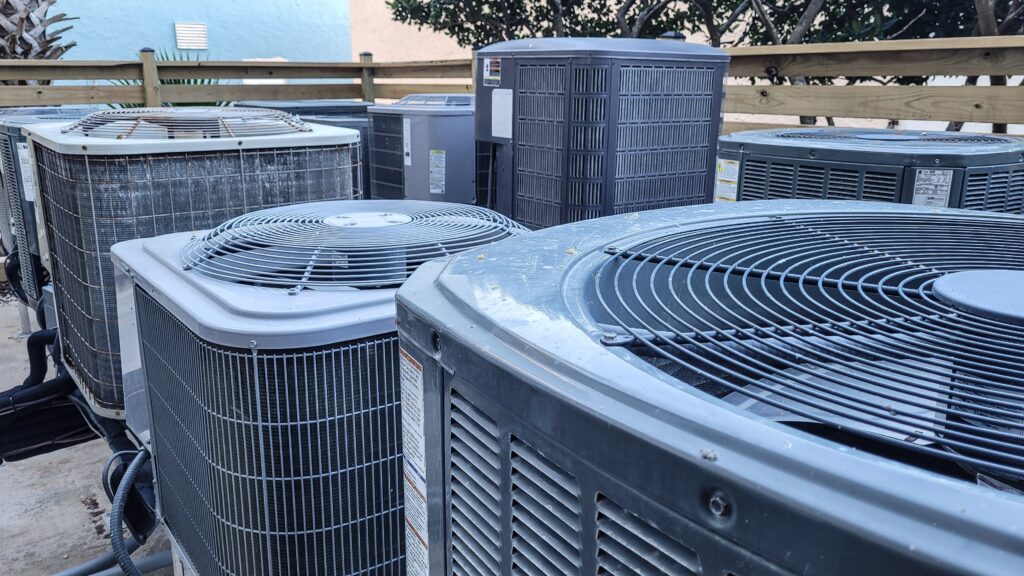
Regular maintenance is essential for keeping your HVAC system in top shape and maximizing its efficiency. Neglecting maintenance can lead to increased energy consumption, reduced performance, and costly repairs. By investing in preventive maintenance, you can ensure that your system operates at its best while minimizing expenses.
Moreover, regular HVAC maintenance not only helps in maintaining the efficiency of your system but also contributes to a healthier indoor environment. A well-maintained HVAC system can improve indoor air quality by reducing the circulation of dust, allergens, and other pollutants. This is especially important for individuals with respiratory issues or allergies, as clean air can lead to better health and overall well-being.
Preventive Maintenance and Cost Savings
Preventive maintenance involves regular inspections, cleanings, and tune-ups of your HVAC system. By scheduling maintenance appointments with a qualified technician, you can address any potential issues before they escalate into more significant problems. This proactive approach can help improve energy efficiency, reduce the likelihood of breakdowns, and ultimately save you money in the long run.
Furthermore, preventive maintenance can extend the lifespan of your HVAC system. By addressing minor issues early on, you can prevent major breakdowns that may require costly repairs or even premature replacement of the entire system. Regular maintenance not only saves you money on energy bills but also helps you avoid the hefty expenses associated with emergency repairs.
The Impact of Neglected Maintenance on Costs
On the other hand, neglecting HVAC maintenance can have costly consequences. A poorly maintained system can lead to reduced performance and decreased efficiency. This means that your HVAC system will have to work harder and longer to achieve the desired temperature, resulting in higher energy consumption and increased expenses.
Additionally, neglected maintenance can void the warranty of your HVAC system. Most manufacturers require proof of regular maintenance to uphold the warranty terms. Failure to provide maintenance records can result in the manufacturer refusing to cover the costs of any repairs or replacements, leaving you with the full financial burden of fixing the system.
Energy-Efficient HVAC Systems
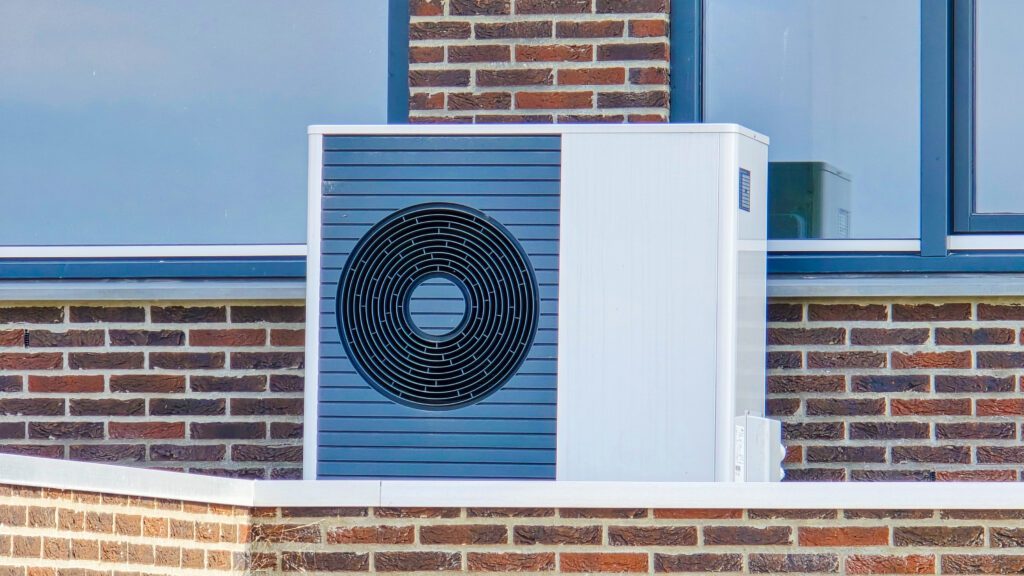

Investing in an energy-efficient HVAC system is a smart long-term solution for reducing your heating and cooling expenses. These systems are designed to maximize energy efficiency while providing optimal comfort. They utilize advanced technology and innovative features to minimize energy waste and lower operating costs.
Energy-efficient HVAC systems are a significant upgrade for any home or business looking to reduce its carbon footprint and operating costs. By incorporating cutting-edge technologies such as variable-speed motors, smart thermostats, and zoned heating and cooling, these systems can adapt to your specific needs and usage patterns, ensuring that energy is not wasted on heating or cooling unoccupied spaces. The intelligent design of energy-efficient HVAC systems also contributes to a quieter and more comfortable indoor environment, with improved air quality and humidity control.
The Benefits of Energy-Efficient HVAC Systems
Energy-efficient HVAC systems offer several benefits. They can significantly reduce your energy consumption, resulting in lower utility bills. These systems are also environmentally friendly, as they emit fewer greenhouse gases and help conserve natural resources. Additionally, energy-efficient HVAC systems often come with improved performance and durability, further reducing maintenance and replacement costs.
Moreover, the long-term benefits of energy-efficient HVAC systems extend beyond cost savings. By reducing energy consumption, these systems play a vital role in combating climate change and reducing overall energy demand. This not only benefits the environment but also contributes to a more sustainable future for generations to come. With increased awareness of environmental issues, investing in energy-efficient HVAC systems is a proactive step towards creating a greener and more energy-conscious society.
How to Choose an Energy-Efficient HVAC System
When selecting an energy-efficient HVAC system, it’s essential to consider factors such as the system’s efficiency rating, size, and features. Look for systems with high Seasonal Energy Efficiency Ratio (SEER) and Energy Efficiency Ratio (EER) ratings, as they indicate better energy performance. Consulting with a reputable HVAC professional can ensure that you choose the right system for your home’s specific needs.
Additionally, consider the overall design and layout of your home or building when choosing an energy-efficient HVAC system. Factors such as insulation, windows, and building orientation can impact the system’s efficiency and effectiveness. By conducting a thorough assessment of your property and consulting with experts in energy-efficient HVAC solutions, you can tailor the system to maximize performance and energy savings based on your unique requirements. Investing in the right energy-efficient HVAC system is not just a financial decision but a strategic investment in the long-term comfort, sustainability, and efficiency of your property.
Smart Thermostats and HVAC Costs
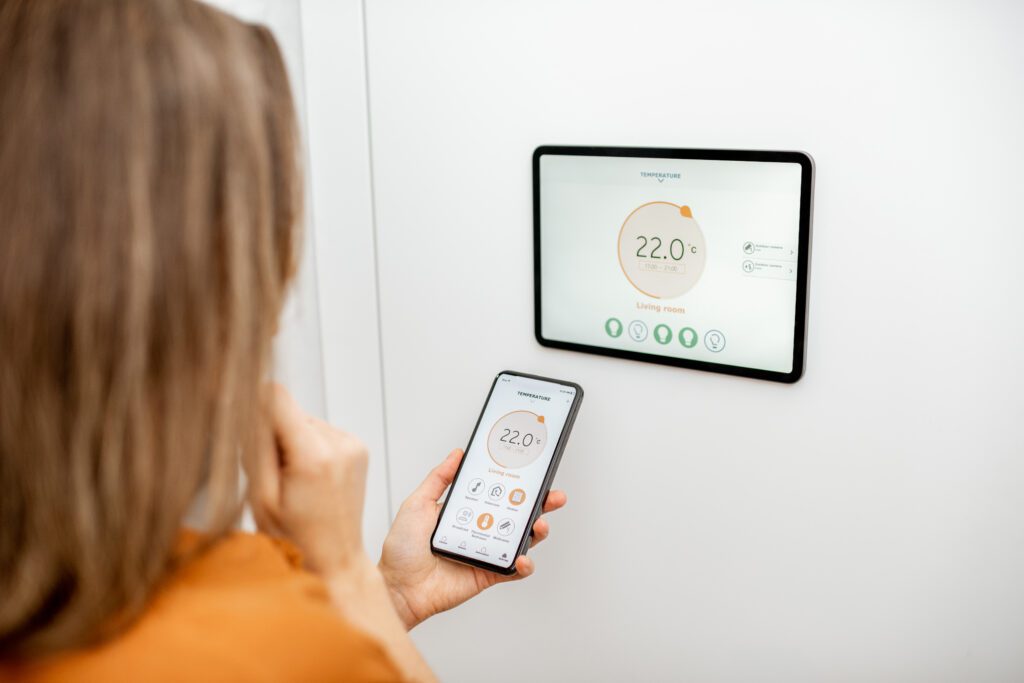

Smart thermostats have gained popularity in recent years for their ability to optimize energy usage and reduce heating and cooling expenses. These intelligent devices can learn your preferences, adjust temperature settings automatically, and provide energy-saving suggestions. Integrating a smart thermostat into your HVAC system can lead to substantial cost savings.
Moreover, smart thermostats not only offer cost savings but also provide convenience and comfort. Imagine being able to control the temperature of your home from anywhere using your smartphone. Whether you’re at work, on vacation, or simply lounging on the couch, having the ability to adjust your HVAC system remotely can enhance your overall quality of life.
How Smart Thermostats Help Reduce Costs
Smart thermostats offer several features that help reduce HVAC costs. They can analyze your usage patterns and create personalized heating and cooling schedules, ensuring that energy is not wasted when you’re away or asleep. Some models even use geofencing technology to detect when you’re leaving or returning home, adjusting the temperature accordingly. By efficiently managing your HVAC system, smart thermostats can help lower your energy consumption and expenses.
Furthermore, smart thermostats contribute to environmental sustainability by promoting energy efficiency. By reducing unnecessary heating and cooling cycles, these devices help lower greenhouse gas emissions and minimize your carbon footprint. Embracing smart technology in your home not only benefits your wallet but also supports a greener planet for future generations.
Selecting the Right Smart Thermostat for Your Home
When choosing a smart thermostat, consider factors such as compatibility with your HVAC system, ease of use, and additional features. Look for models that offer energy reports, remote access via mobile apps, and integration with other smart home devices. Understanding the capabilities of different smart thermostat brands can help you make an informed decision about the one that best suits your needs.
Additionally, some smart thermostats come with advanced features like learning algorithms that adapt to your schedule over time, further optimizing energy usage. These models can provide insights into your energy consumption patterns, helping you make informed decisions about reducing waste and improving efficiency. Investing in a smart thermostat is not just a purchase; it’s a step towards a more connected, efficient, and sustainable home environment.
Insulation and HVAC Efficiency
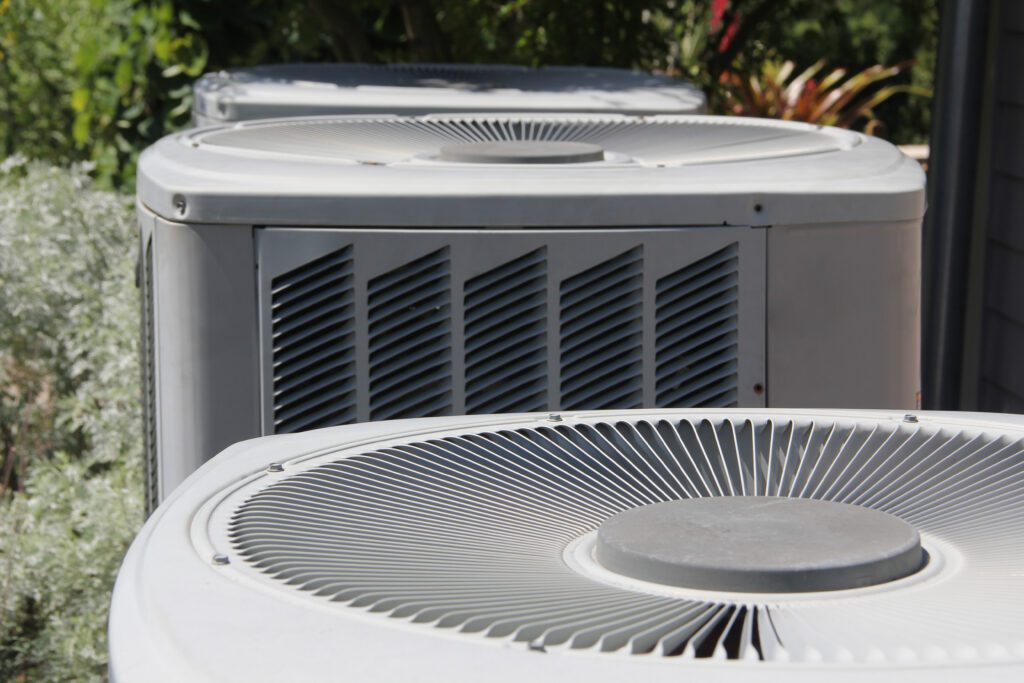

Proper insulation plays a crucial role in improving HVAC efficiency and reducing energy waste. Insulation acts as a barrier, preventing heat transfer between your home and the external environment. By enhancing insulation in key areas, you can minimize temperature fluctuations and reduce strain on your HVAC system.
The Role of Insulation in Heating and Cooling
Insulation helps keep your home warm in winter and cool in summer by trapping air and preventing its escape. It acts as a thermal barrier, reducing the need for excessive heating or cooling. By properly insulating your home’s walls, attic, floors, and ductwork, you can minimize heat loss or gain and create a more comfortable living environment.
Improving Insulation to Reduce HVAC Costs
If your home lacks adequate insulation, consider adding or upgrading it to improve HVAC efficiency. Common insulation materials include fiberglass, cellulose, and spray foam. Additionally, sealing air leaks and weather-stripping doors and windows can significantly reduce energy waste. By investing in insulation improvements, you can reduce your reliance on heating and cooling systems, leading to long-term energy savings.
But what exactly happens when insulation is insufficient? Well, without proper insulation, your HVAC system has to work harder to maintain a comfortable temperature inside your home. This extra strain on the system not only leads to higher energy consumption but also increases the risk of breakdowns and premature wear and tear. By neglecting insulation, you are essentially making your HVAC system run a marathon with weights strapped to its ankles.
Let’s take a closer look at the different types of insulation materials available. Fiberglass insulation is one of the most commonly used options. It consists of tiny glass fibers that trap air and slow down heat transfer. Cellulose insulation, on the other hand, is made from recycled paper products treated with fire-retardant chemicals. It offers excellent thermal performance and is an eco-friendly choice. Lastly, spray foam insulation is a versatile option that expands to fill gaps and cracks, providing an airtight seal.
When it comes to sealing air leaks, it’s not just about preventing drafts. Air leaks can also lead to moisture problems and poor indoor air quality. By properly sealing your home, you can keep out dust, pollen, and other allergens, creating a healthier living environment. Weather-stripping doors and windows is another effective way to prevent air leakage and improve energy efficiency.
In conclusion, insulation is a vital component of HVAC efficiency. By investing in insulation upgrades and sealing air leaks, you can create a more comfortable and energy-efficient home. So, don’t overlook the power of insulation when it comes to reducing your HVAC costs and improving your overall comfort.

